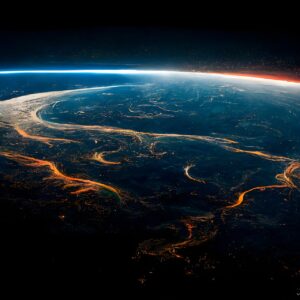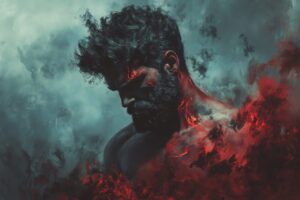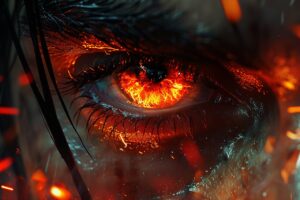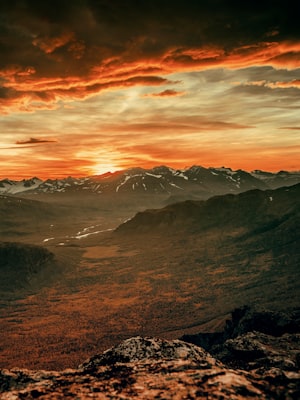
Imagine a time before history existed: a world newborn, untouched, pristine.
Some legends claim that God formed life from clay, shaping bodies with care and breathing souls into them, each imbued with unique traits. He placed them upon the earth in their likenesses and watched. The legends—part truth, part comforting fiction—speak of this God as an omnipotent creator, but they fail to capture his flaws, his impatience, his ultimate abandonment.
Perhaps there was once a One True God. Perhaps not. What is certain is that countless gods arose, each staking a claim on creation. Their ambitions clashed; their overlapping domains bred strife, chaos, and rivalry. Some gods abandoned their half-formed worlds, leaving barren planets adrift in space. Others micromanaged their creations into stagnation. The question remains: if you were a god, what would you do? Would you meddle in every moment, answer every prayer? Or would you step back and let your creation thrive—or crumble—on its own?
Ours chose abandonment but not before crafting eight paragons. He divided his power among them, a last act of delegation, then left them to decide their fate. They were meant to govern and create together, but their hubris proved catastrophic. Three times, their god intervened to reset their failures. The last time, he cast them deep into the earth, sealing them away. The world grew cold, lifeless, a barren rock. But life, as always, found a way.
The last beginning:
Pain, searing and all-consuming, flared through the first Paragon. It coursed through his skull, his limbs, every part of his being. He couldn’t move, couldn’t scream, until instinct surged. Stone cracked and fell as he clawed free, his body straining against the earth that entombed him. Massive boulders rolled down the mountainside, their deafening collapse shaking the ground. He emerged, his vision blurred by the harsh light of a reborn sun.
One step, then another. Each movement brought a flood of sensations: scents, sounds, memories falling into place like shards of a shattered mirror. Then came the voice, not external but etched into his very being:


“A gift and a curse.
I scattered you, buried you, and sealed you away. My greatest creations became my greatest disappointments, repeating the same failures as those before you. You learned nothing. Perhaps now you’ll understand when your own creations mirror your flaws.
You will awaken and find the others. You will create and populate as you were meant to. And you will suffer the same fate as I—crippling disappointment. Unlike me, you’ll live with it for eternity, repeating this cycle until time itself dies.
I wish I could care, but I don’t. Thrive together or destroy yourselves again and again. The choice is yours. I’ve moved on. Free will was my greatest mistake.
—God”
The words echoed, relentless and sharp, carving into his mind. Their meaning sank deep, heavier than the mountains he had just escaped. God had abandoned them. There was no return.
Alone, he wandered. The planet had reshaped itself in their absence: vast mountains, lush valleys, rivers carving paths through stone. It was a world with its own rhythms now, light and dark, seasons shifting in harmonious cycles. Small creatures thrived—birds, insects, animals—but no complex beings stirred. The Paragons had always imposed their will, their egos disrupting the natural order. Without them, Earth flourished.
Night after night, he sought answers in the silence of the stars, finding none. Only the Creator’s parting words echoed in his mind: “You will awaken and find the others. You will create and populate.”
He did. Of the seven others, he found four. Together, they rebuilt. The first Paragon became their leader, not by choice but necessity. He was the tie-breaker, the taskmaster, the father-figure in crises. But his ultimate goal was clear: find the missing three and restore their unity.
Over time, the four remaining Paragons fell into their roles. Trial and error birthed systems, each embracing their unique domain. Together, they set the world in motion, stepping back to let their creations grow. Yet they never abandoned what they had shaped.


This was the beginning. Now, we stand in the present.
Each race thrives within today’s society, their origins interwoven with myth and memory. Only humanity remains ignorant. The Paragon of Humans concealed their shared history, allowing humanity to forge its own path, invent its own beliefs. The truth lies hidden in fantasy, whispered in ancient tales. Those who uncover it are never the same.
Some minds shatter, unable to bear the weight of reality’s expanded scope. Others adapt, embracing the change, shedding their humanity to step into a greater existence.
What will you do?